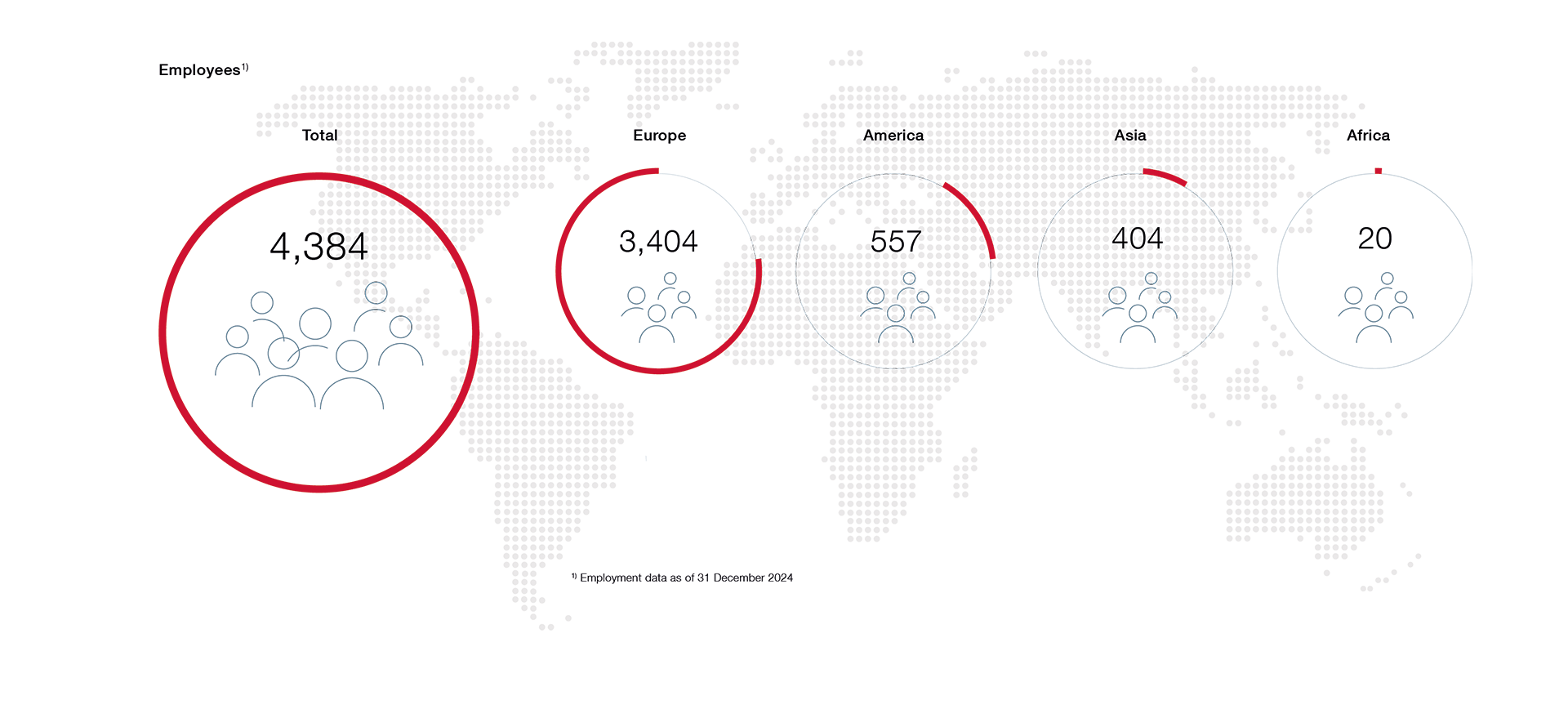A socially oriented corporate policy forms the backbone of our corporate identity, which is characterized by internationality, a sense of community, quality and customer orientation. As a multinational group of companies, we are Always committed to fully respect human rights in accordance with international standards and promoting inclusion and diversity based on tolerance and respect. Our corresponding guiding
principles are set out in the Compliance Guideline and form the basis for targeted measures in line with our social responsibility.
principles are set out in the Compliance Guideline and form the basis for targeted measures in line with our social responsibility.


